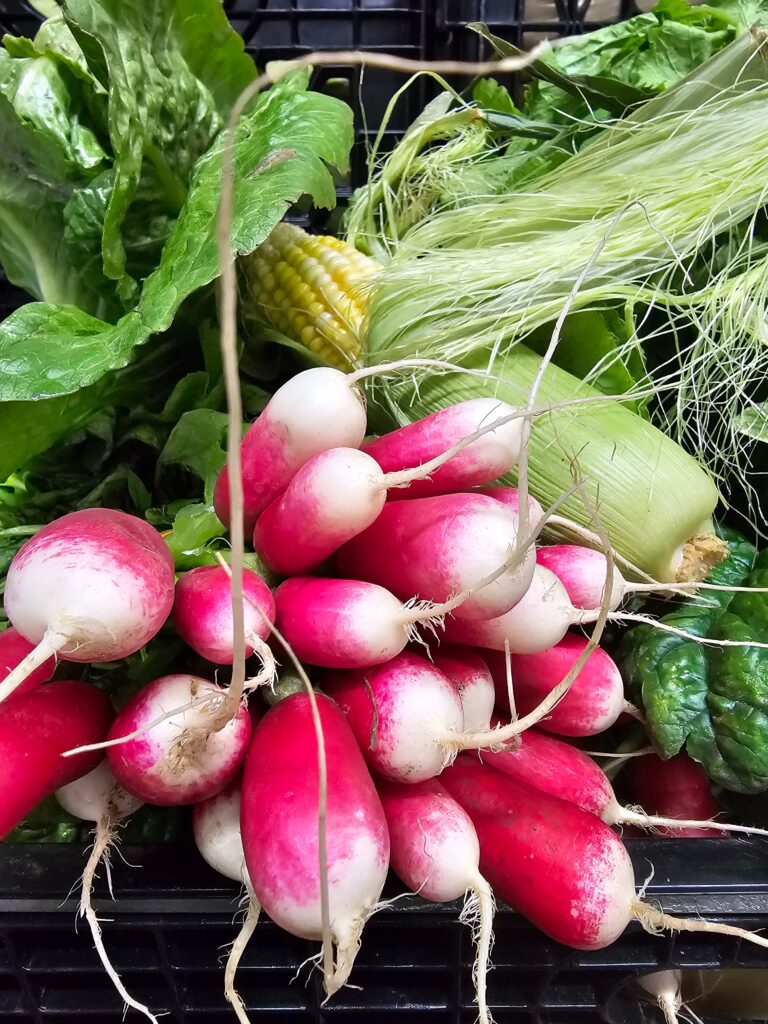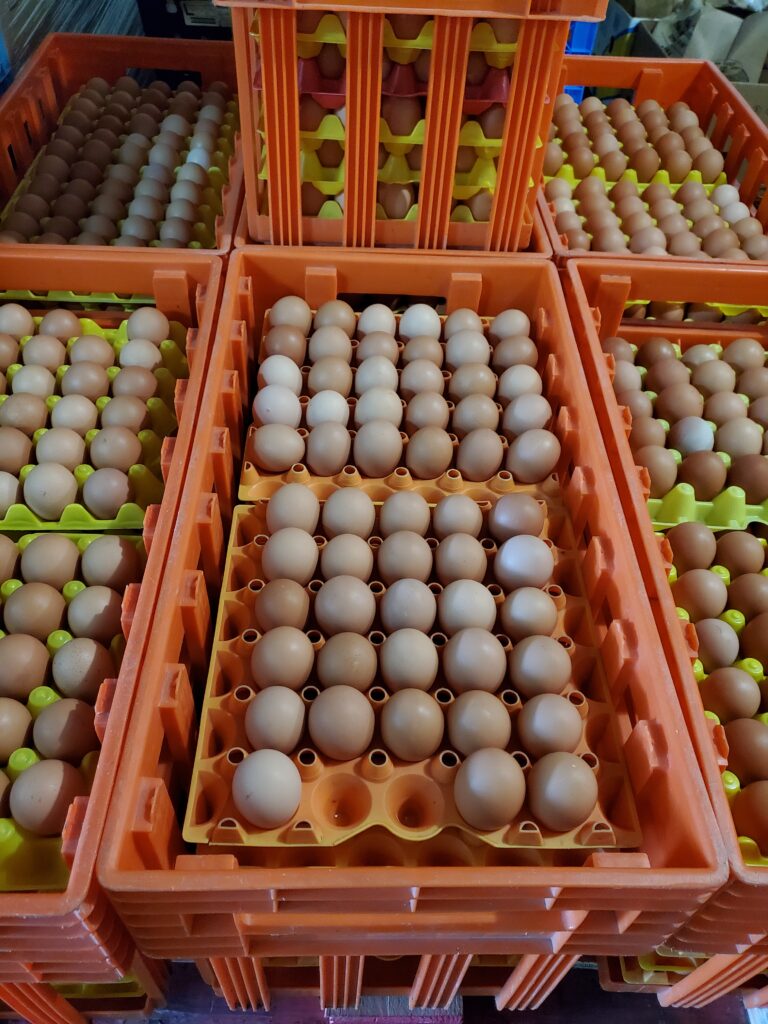
On March 20, Matt Steinman of Foothills Farm stopped by the Helping Hands Food Bank Participant Council to talk about the challenges of being a local farmer and how the We Feed WA grant, awarded to Helping Hands Food Bank, has helped mitigate some of those challenges.
“In the big scheme of farms, we’re pretty small,” Matt said about Foothills Farm. “We do a lot of acres of veggies, but at the scale of retail we’re at, it’s hard to sell here in the local community. I can sell a little bit into Pioneer Market, but when you’re talking about [big grocery stores], they’re looking to buy from large-scale distributors. So, we have a challenge getting into our local community and selling veggies directly to our neighbors if they’re not buying from our farmstand.”
The We Feed WA grant gives Helping Hands Food Bank more than $570,000 over the next two years to purchase locally produced food (70% of it must be produce) to then offer in the food bank. The program allows the food bank to support local farms by purchasing their product at a good market value and then offering it to food bank participants, who then get access to fresh, healthy, locally grown food.
Matt, his farm, and his family have donated to Helping Hands Food Bank for years by donating produce and funds, contributing to the capital campaign to get the new Solutions Center in Sedro-Woolley built, and working with Helping Hands staff to better understand how to work with local farmers.
Now with the We Feed WA grant, Helping Hands is able to support Foothills Farm (and other farms and local food producers) in ways that can transform their farm and business.

“The grant has helped us immensely,” said Matt. “It’s consistent. We can communicate [with Helping Hands]; I know they have a need, and I can count on that income as a business owner. I know we’re going to make a certain amount of money every single week and that ensures that I know I can pay for things, I can pay my employees. And now I can expand my business because I know we have this consistent, concrete amount of money.”
Steady income in the inconsistent farming industry is an invaluable asset and stabilizing feature that the We Feed Grant and Helping Hands can offer local farmers. This has been especially important since the COVID-19 pandemic, Matt explained.
“Throughout the last three or four years, farmers have experienced a lot of different challenges. There are a lot of COVID-related supply chain challenges that really hit us hard as a price taker, not a price maker. There are a lot of socioeconomic challenges for farmers, whether it’s the cost of fuel in Washington State, the cost of labor, or the cost of seeds. We’re beholden to that overall supermarket model. Inconsistency both in the marketplace and in where we buy things has been challenging. So, to have that consistent base of money coming in [from the We Feed WA grant] is great.”
Sherry Klander, Food Procurement Manager at Helping Hands Food Bank, is responsible for working with local farms and executing the We Feed WA grant at the food level. Both she and Matt talked about the working relationship they’ve built through the grant. Together, Sherry and Matt can discuss the needs and wants of the participants in terms of farm-grown foods they’d like, and Matt is able to plan and plant for that, knowing he can depend on the funding to pay for it.
With the reciprocal relationship between the food bank and the farm facilitated by the grant, ultimately it is the participants who truly benefit by being able to access healthy, locally-grown foods.
“It’s a win-win,” said Matt. “It’s a great relationship. It’s like the hub of a wheel. There’s a lot starting here [with the We Feed WA grant], but there’s a lot of other opportunities that are radiating out from just local food procurement and local farmers working together.”
